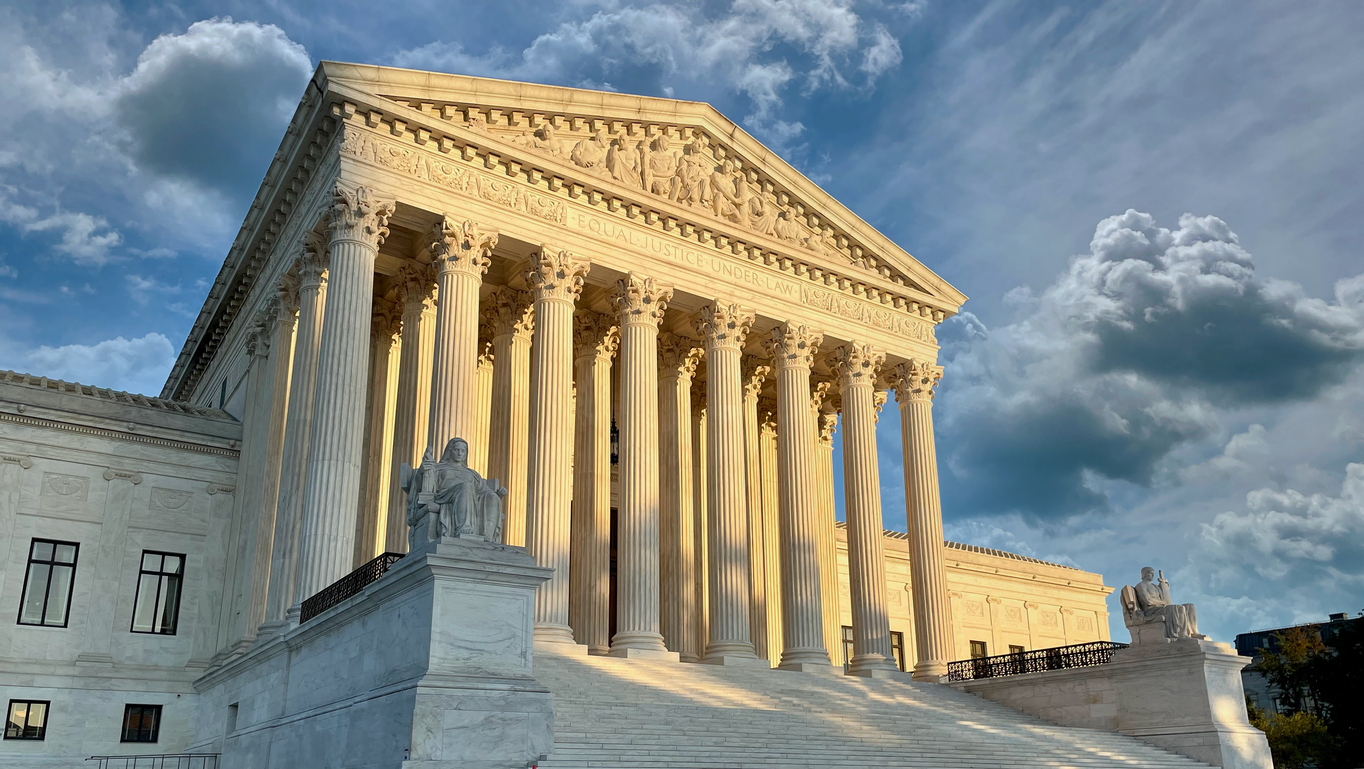The Scoop: Supreme Court neutrality takes another hit with upside-down flag
Plus: Testing Google’s new AI search; cause of death in ‘One Chip Challenge’ revealed.

Supreme Court Justice Samuel Alito is under scrutiny for the flying of an upside-down flag at his home in Alexandria, Virginia just days before the inauguration of President Joe Biden.
According to a New York Times investigation, neighbors shared photos of the flag, which is both a symbol of distress as well as a symbol of protest that was seen heavily during and after the Jan. 6 insurrection as a symbol of support for Donald Trump.
“I had no involvement whatsoever in the flying of the flag,” Alito told the Times in a statement. “It was briefly placed by Mrs. Alito in response to a neighbor’s use of objectionable and personally insulting language on yard signs.”
Reports from others in the neighborhood indicate that indeed, a homeowner had displayed an anti-Trump yard sign that featured an expletive, which had triggered a feud with Alito’s wife, Martha-Ann.
Still, that neighbor was presumably not married to a Supreme Court justice.
Ethics experts say that even if Alito personally had no involvement with the flag, the appearance of bias at his home still poses a problem.
“You always want to be proactive about the appearance of impartiality,” Jeremy Fogel, a former federal judge and the director of the Berkeley Judicial Institute, told the Times. “The best practice would be to make sure that nothing like that is in front of your house.”
Indeed, the flag would seem to violate the court’s own rules against displaying political yard signs or bumper stickers, though the court did not answer questions about whether those rules apply to justices.
Why it matters: The court has faced increased ethical scrutiny in recent years, particularly around Clarence Thomas. Thomas is accused of close connections with prominent conservatives, including receiving free vacations, tuition for his grandnephew’s private school and a forgiven loan on a luxury RV, among others.
Trust in the U.S. Supreme Court is now at historic lows. As of July 2023, only 44% of Americans hold favorable views of the court, the lowest since polling began in 1987. Trust has fallen 26 points since 2020.
Now, it would be facile to suggest that the entirety of the decline is due to ethics scandals. The upheaval of COVID and the 2020 election surely play a role. But the opacity of the Supreme Court’s ethics and the lack of any real transparency and accountability likely also entered into the equation.
This latest incident won’t help.
None of the justices are likely to face consequences or be forced to step down; they hold lifetime appointments. But a lack of trust in a fundamental institution is still a reason for concern.
Consistent, clear, public-facing ethical guidelines aren’t just good for public trust – they’re good for staff too, from your highest ranking to the greenest hourly worker. It helps ensure everyone is on the same page and understands what’s expected of them, which can help avoid public appearances of impropriety.
Editor’s Top Reads:
- As Google incorporates AI into the top of its search engine results pages, we’re learning “to Google” in a new way. No longer will people have to hunt through multiple links to find what they’re looking for; theoretically, AI will often serve up what we want right there on the results page. The Washington Post ran a number of tests and fact checks to see how the new AI-powered technology performed. A restaurant critic gave low marks to its results for “best Mexican restaurant near me with great margaritas, a nice atmosphere and at least four stars on Yelp,” while “Mexican restaurants near me” returned results fairly close to the searches we’re used to. “Best vacuums for pet hair” returns results that no one really claims are “the best,” though they are indeed vacuums for pet hair. And finally, a straight-up request for factual information returned accurate information, but experts are still concerned about hallucinations. So many unanswered questions remain about how this will impact traffic to media sites and content marketing. But, this is good information as we step into a brave new world of search. Stay tuned Monday for more coverage from PR Daily.
- An autopsy revealed that a high school sophomore who died after taking the Paqui “One Chip Challenge” to eat an intensely spicy chip was killed by a heart attack. The boy had both an enlarged heart and an arterial defect and was found to have large amounts of capsaicin, the chemical that makes food taste spicy, in his body. The AP reported that while the heart defects likely contributed to his death, people with normal hearts can still experience problems when ingesting very spicy food. After his death, the chip, which was sold in a coffin-shaped box, was pulled from the market, but Paqui continues to deal with the fallout today. “We were and remain deeply saddened by the death of Harris Wolobah and extend our condolences to his family and friends,” Paqui said in a generic statement. Between this and the Panera Charged Lemonades , this is a reminder of the duty that companies and communicators have to be upfront and clear about product risks. The failure to do so can be devastating.
- A letter revealing that American Airlines flight attendants can earn as little as $27,315 each year has gone viral, drawing attention to the tiny salaries these professionals can earn. While the flight attendant union verified the letter, American Airlines itself has refused to comment. But the union is taking this as an opportunity to draw attention to the low wages of its workers, noting they haven’t received a raise since 2019. While the average salary of a flight attendant is $70,000, the letter has given the union a powerful bargaining chip and a chance to tell its story while American Airlines remains silent. That could mean changes at the bargaining table.
Allison Carter is editor-in-chief of PR Daily. Follow her on X or LinkedIn.








The people are in charge of our safety the airlines cheap our. How much do the executives make? Have you flown lately it’s like being in the projects.